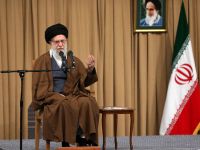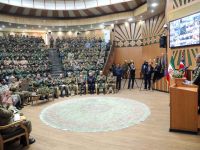Last week, Tunisia announced the dismantling of a terror cell consisting of six men in Tataouine city to the south of the capital city; A few days later, a radio journalist was arrested for reporting the news.
According to Tunisia's private broadcaster Radio Mosaïque FM, journalist and radio presenter Khelifa Guesmi was arrested by an anti-terror unit after his reports on the dismantling of the terror group.
The Counterterrorism Brigade Unit wanted to interrogate (and maybe arrest) two other journalists from @RadioMosaiqueFM including the Editor-in-Chief. In a statement issued earlier today, the editorial board said that they are "clearly targeted" because of "their editorial line". https://t.co/Z36efeoBVS pic.twitter.com/UmMzPPItGt
— Mohamed-Dhia Hammami - محمد ضياء الهمامي (@MedDhiaH) March 19, 2022
Guesmi has since been summoned to court on Friday, during which he was asked to "reveal his sources" on the news he reported. However, journalist Khelifa Guesmi has refused to do so, highlighting his right as a journalist to protect his sources.
While Guesmi continues to be under arrest, Radio Mosaïque FM and the National Syndicate of Tunisian Journalists have expressed full support for the journalist to continue to protect his sources and is urging authorities to "stop suppressing press freedoms in the country".
Online people also rallied in support of the journalist, saying that the independent media in Tunisia has been heavily targeted by the government, particularly after the July 2021 decisions taken by President Kais Saied, who dissolved both the government and the parliament, before assigning a new cabinet in October 2021.
??#Tunisia human rights organisations and professional structures, Saturday, called for the release of @RadioMosaiqueFM reporter journalist Khelifa Guesmi, who was arrested for broadcasting a report on arrests made on suspicion of terrorism and refusing to reveal his sources. pic.twitter.com/G4HG0GAS3c
— XLR Media (@xlr_media) March 20, 2022
Saied's decisions have since ignited wide controversies amongst Tunisians with some showing support for his "efforts to end corruption amongst politicians", while others accusing him of "harming the country's democracy and attempting to create a new dictatorship".
Tunisia was the first Arabic-speaking country to witness nationwide protests demanding the full change of prevailing political regime in December 2010, in what was became known as the Arab Spring. In January 2011, the "Jasmine Revolution" succeeded in overthrowing the former dictator Zine El Abidine Ben Ali after 24 hours of absolute power.








